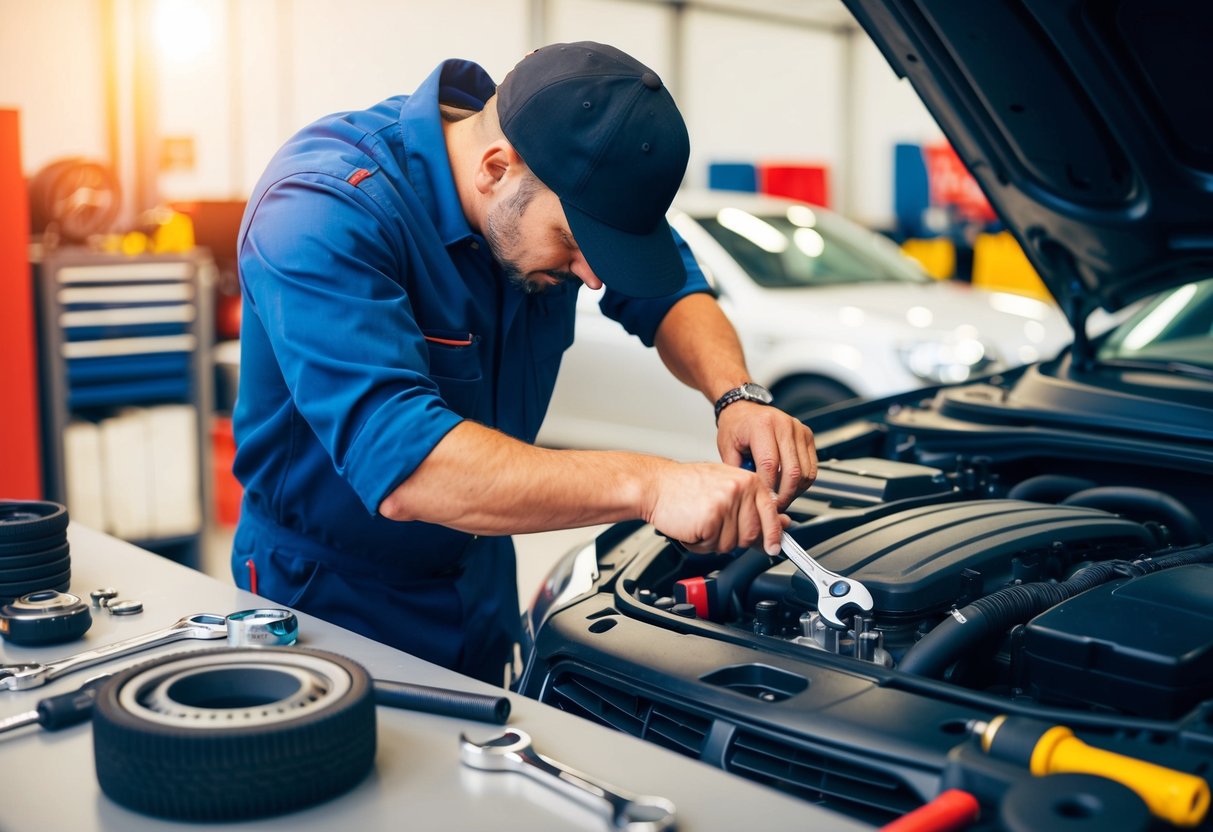
Engine Care Essentials
Proper engine maintenance can significantly enhance a car’s lifespan. Paying attention to the type of oil used and conducting regular maintenance checks are key practices.
Choosing the Right Engine Oil
Selecting the right engine oil is crucial for optimal performance. Different engines require different oil types, such as conventional, synthetic, or high-mileage. Each type offers distinct benefits. The car’s manual typically outlines the best oil viscosity and grade for the engine. The correct viscosity ensures that the oil maintains the right thickness in varying temperatures, which aids in proper lubrication and reduces engine wear.
Using the recommended oil type can improve engine efficiency and fuel economy. Drivers should pay attention to oil change intervals, which can vary depending on the oil type and driving conditions. Sticking to a regular oil change schedule is important for removing contaminants and ensuring smooth engine operation.
Routine Engine Maintenance Checks
Regular engine maintenance checks are essential in maintaining performance and identifying potential issues early. Simple tasks, such as inspecting the oil level and condition, allow drivers to act before minor issues escalate. A routine visual inspection of the engine can reveal leaks or worn-out parts. Checking the coolant level is also vital for preventing engine overheating.
Battery connections should be secure and free from corrosion to ensure proper starting and electrical performance. Additionally, replacing the air filter when dirty can enhance fuel efficiency and engine power. Routine checks can save money by extending the vehicle’s life and reducing the need for major repairs. Consistent vigilance helps maintain reliability and smooth operation.
Optimizing Fuel Usage

Improving fuel efficiency is essential for reducing costs and prolonging vehicle lifespan. Techniques such as maintaining steady speeds, minimizing idling, and strategic trip planning can significantly cut fuel use.
Effective Fuel Consumption Strategies
Driving habits have a major impact on fuel efficiency. Maintaining a consistent speed, rather than frequent acceleration and braking, helps improve mileage. Using cruise control on the highway also contributes to steady fuel consumption. Tire maintenance is crucial; properly inflated tires reduce road resistance, thereby enhancing fuel efficiency. Drivers should check tire pressure regularly to ensure optimal performance. Reducing excessive vehicle weight is another tactic. Clearing out unnecessary items from the car trunk can improve fuel economy.
Additionally, planning efficient routes and combining errands into one trip can prevent unnecessary driving. This not only saves fuel but also reduces engine wear over time. Using navigation apps can help in selecting the shortest path and avoiding traffic congestion, further optimizing fuel usage.